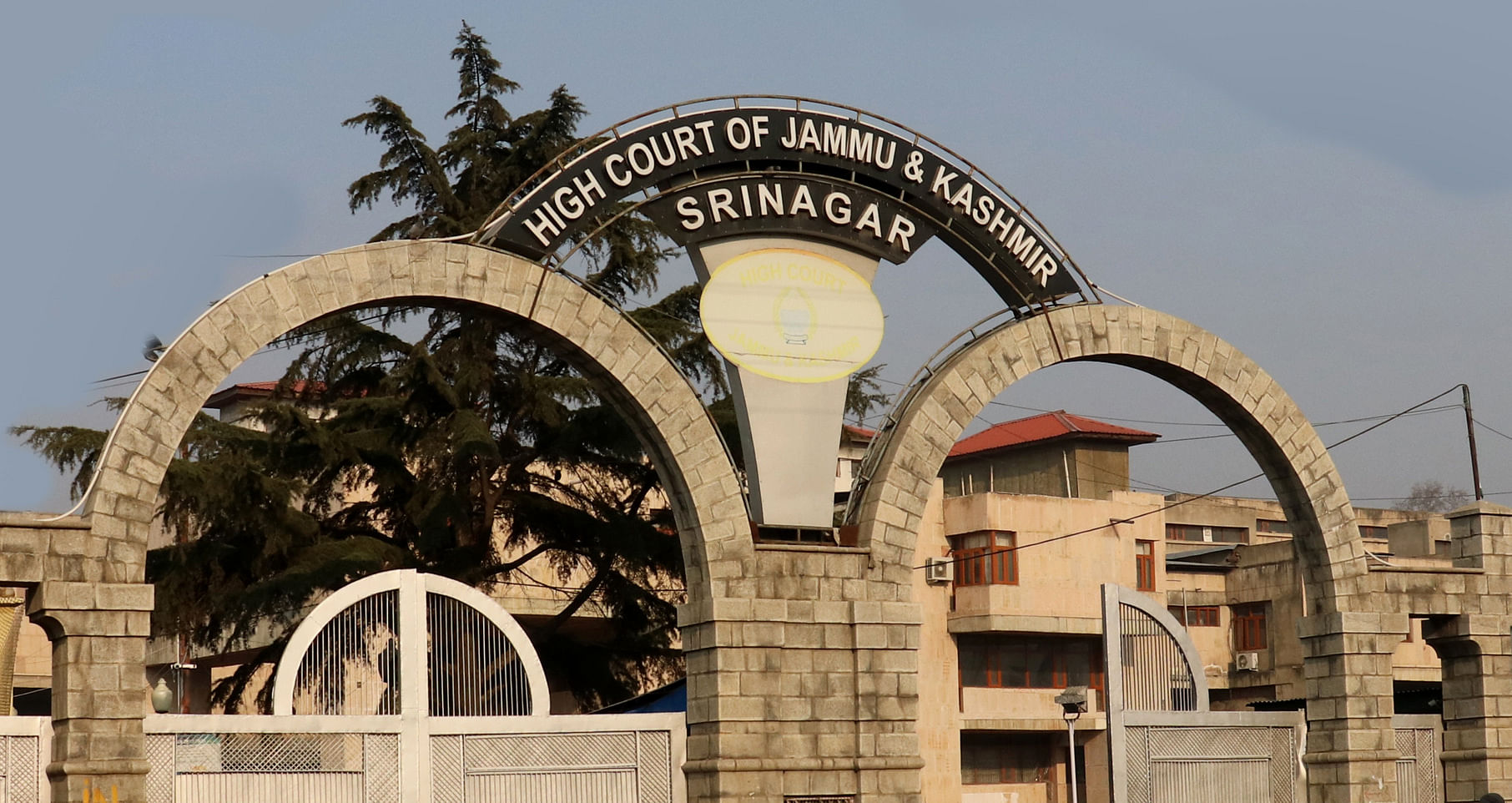J&K High Court is likely to hear on April 9 a plea against triple talaq— the first petition since the Parliament passed Muslim Women (Protection of Rights on Marriage) Act, 2019.
“It is the first case filed in J&K High Court against the triple talaq since the Parliament passed the legislation making triple talaq illegal,” Advocate Arif Skinder Mir representing the petitioner told Greater Kashmir.
A woman from Srinagar outskirts has approached the court challenging two notices of talaq sent to her by her husband through WhatsApp. In her plea she submits that the notices are not in consonance with the law laid down by the Parliament as well as the Supreme Court.
As the plea came up before the bench of Justice Ali Muhammad Magrey, the court deemed it “appropriate” to summon both the parties for ensuring some kind of settlement before proceeding further in the matter. The court directed its Registry to summon the parties by the available mode on April 9.
In her petition, the petitioner submits that she and her husband, a resident of Jamia Nagar, New Delhi, entered into a contract of marriage (Nikah) on August 18, 2020.
On account of a medical problem while resting at her paternal home, the petitioner contends she received a notice through WhatsApp from her husband. She is aggrieved of the notice (first talaq) dated 11.2.2021 and the notice (second talaq) dated 12.3.2021 pronounced by her husband on her.
Bare reading of the notice, the petitioner contends, will suggest that her husband has invoked “Talaq-e-Bidat (Triple Talaq)” against her and the first notice was issued on 11.02.2021.
According to the petition, the husband in his first notice to the petitioner has stated that he had married her as per the Muslim Laws on 18 August, 2020. “Since the very beginning of our marriage, we have not been able to live peacefully and have had our differences in the married life . . . the differences grew such grave between us that it has now become impossible for both of us to cohabit together despite various attempts to save the marriage,” the notice reads.
“In these circumstances in order to save myself from the constant mental stress, it is better that we part ways by way of talaq in the most amicable manner. Therefore, this is my first notice of pronouncement of talaq as stipulated in Sharia Law,” reveals the notice. “As per the Sharia Law, I (as a husband) have the right to divorce my wife, at any time, by means of pronouncing it and/or by written notice”.
Subsequently the husband of the petitioner has issued a second notice dated 12.03.2021 to the petitioner on WhatsApp and email. In the notice the husband contends that the “Talaq is not complete right now but only the second pronouncement is intended through the Talaqnama and once the same was complete through the three pronouncements, he and his wife will have no concern with each other whatsoever”.
In her plea the petitioner submits that from the bare perusal of both the notices- first and second pronouncements of Talaq- and “non-cooperative nature of her husband and his family”, she is apprehending the issuance of third talaq by her husband.
With the issuance of third talaq, the petitioner says, the Talaq-e-biddat, will be complete and she and her husband will cease to be husband and wife.
The petitioner being aggrieved of the issuance of first and second talaq has invoked the jurisdiction of the court.
Citing SC judgment in case titled Sayara Bano V Union of India, (2017) advocate Mir on behalf of the petitioner submits that the apex court has set aside the practice of Talaq-e-Bidat and held that practice of Triple Talaq is arbitrary in nature in the sense that the marital tie can be broken “capriciously and whimsically” by a Muslim man without any attempt at reconciliation so as to save it.
While the petition underlines that legislation namely, Muslim Women (Protection of Rights on Marriage) Act, 2019 has been enacted, it says Section 3 of the Act makes any pronouncement of Talaq by a Muslim husband upon his wife, by words, either spoken or written or any alternative form or any other manner whatsoever “void and illegal”.
The petitioner submits that “Talaq-e-Bidat means Triple Talaq, from the contents of the notices it is clear that her husband has invoked Talaq- e-Bidat on her. She pleads that since the Parliament has enacted a law banning issuance of Talaq-e-Bidat, as such the issuance of First and Second Talaq by her husband is in contravention of Section 3 of the Act.
Notably, Talaq-e-Bidat is a practice which gives a man the “right” to divorce his wife by uttering Talaq three times without his wife’s consent.
The petitioner is seeking to quash first Talaq and second Talaq pronounced by her husband on her and to restrain him from pronouncing the Third Talaq.






